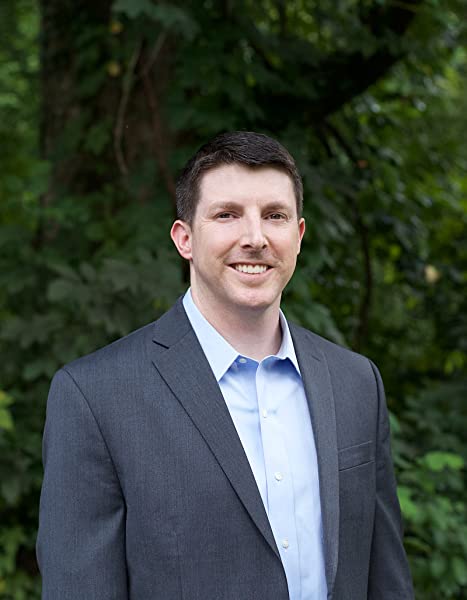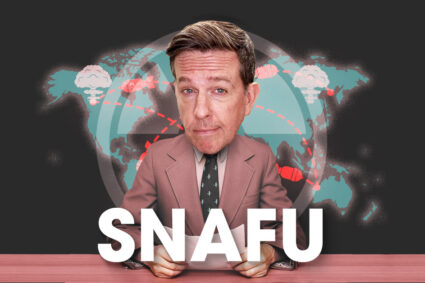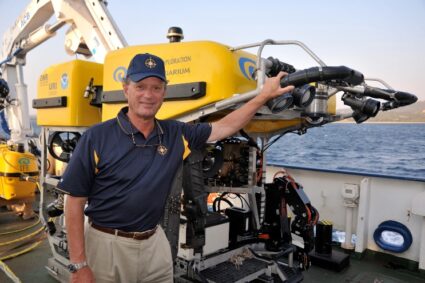
Hey all and welcome back to the INTERVUE! We are continuing our incredible in-depth conversation with CMDR Guy M. Snodgrass the author of the new book, TOPGUN’s Top 10: Leadership Lessons from the Cockpit, due out today.
In case, you miss Part 1 of the conversation, click HERE! If you’re ready for Part 2, READ ON!
Speaking along those lines, when did it hit you that you were a leader, and how did affect you?
I feel that certainly attending the Naval Academy. That was a moment in time when you knew that “Ok, you’re part of the military. So there are always people looking to you for leadership and for guidance. You can run from it and then of course nobody wins or you can rise to the challenge and you can use that as a motivation to be that effective leader you can possibly be.” You know, I give a lot of credit to the US Naval Academy, to the Navy, to the military for developing that side of me.
I would say that right before I went into the military, I had the luxury of growing up was a boy scout. I have earned my Eagle Scout. I have taken a lot of scouts over to, what we call, high adventure scouting camps in which I was the scout in charge. So, I had some leadership experience beforehand but nothing of course when you’re in the U.S. military. I feel that I was a leader from an organizational standpoint.
The part where I felt that it was on steroids was when I attended TopGun where not only I was a student but when I became an instructor. Now you realize that you’re the expert for the U.S. Navy & U.S. Marine Corps, 500,000 people are looking to you to tell them what to do. That was pretty awesome.
(Editor’s note: During this time, I reflected with CMDR Snodgrass on my time in NJROTC going to the “TopGun” camp of the program, Leadership Academy, and earning the Silver Aiguillette. By the time, I graduated from high school, the CO, XO, and I at the time of the Battalion were in the Leadership Academy program together)
How were you able to transfer your skills from serving your country as Naval Aviator & Top Gun instructor to being a speechwriter to General Mattis?
The point is that these Top 10 lessons apply to basically anybody. I just wrapped them into these compelling stories. The ten lessons that you read about not only I learned them as a TopGun instructor but I learned them while I was flying combat missions but they apply everywhere. So, when I walked into Sec. Mattis’ office and am now in charge of his whole speechwriting team, a little bit of a fish out of water, again just like I said “Nothing worthwhile is ever easy”. Focus on your talent, passion and personality. Always treat people with dignity and respect. You work well in teams. One of the chapters is “The importance of always having a Wingman”. Learning to build trust and relationships so people can watch your back and you can watch theirs. All of these ten lessons applied to my time with Mattis. It’s that hard work, it’s that dedication, it’s that relentless pursuit of excellence. The good news is that when you have a job like that you’re not doing this for yourself it’s because you want your boss or in this case, the United States of America to be as successful as possible.
My follow-up question is how did this opportunity come about?
You know that are many things that come arise because of fate, chance, and timing. Jackie Robinson, the baseball player, had a great saying that goes “Luck is when preparation meets opportunity.” The point being is that as long as you’re working hard to prepare when the opportunity presents itself that how you create luck. I had just come off of a tour of duty, my first time in Japan. I was a student at the Naval War College in Newport, RI. You are there to study history and there to think about leadership. I did well there and the Chief of Naval Operations at the time needed a speechwriter. I was not an English major. I had no true interest other that I knew that it was an honor to be asked to take that job. I think I feel bad for Admiral Greenert because for about the first three or four months, I was not as good as I could have been for him because I was learning the ropes. I was learning to be a speechwriter.
It was a pivotal role to have because I went to Japan, I became a Commanding Officer of an award-winning fighter squadron. When I came back to America, President Trump had been elected and he selected Jim Mattis as his Secretary of Defense. So Mattis asked me to come and be his speechwriter for not only I had a strong record in the Navy but also I had experience as a speechwriter, which is very rare.
You have been hitting out the ballpark ever since which I am really proud of you.
Well, thanks! You know the cool thing is that when you look back on these kinds of things, these accomplishments, it sounds cliché but it’s absolutely true, it’s always a team sport. So, the squadron in Japan winning all these awards and doing a great job. The 220 men and women you lead who are really doing the work really making everything click. They have to buy into leadership. You can’t force people to follow you. You have to set a good example. Set a good tempo. If you do it the right way, then you create a situation where people are inspired by it and they want to pursue it. So, we did and we set a lot of cool records but you think about the men and women you get to work with, you think about the mentors who give you time to teach you along the way. That’s really what those things are, a reflection on the investment that people made in you.
In your book you talked about “Thinking down the road will ensure that you’re not caught by surprise” and I would like you to tell us why you need to think ahead.
The reason why this lesson was important to me was because of my background. As a fighter pilot, the last time you want to think about an emergency is when you’re actually in an emergency, or the last thing you want to think about landing your fighter is when you’re about to land because that’s usually when something bad goes wrong or something unexpected happens that you didn’t think about beforehand. Now, you’re in a bad place you’re not ready, you’re not prepared. The advice that I always have given to the men and women that I led was that you should be thinking thirty minutes and three hundred miles in front of your aircraft. The point being is that everything is good right now but what could happen a half an hour from now or where would I be half an hour from now. What are the likely challenges that I might face or if I am going into combat, what will that look like? You always want to be thoughtful about thinking down the road. I have learned that lesson as a fighter pilot but it is easy to apply to your daily life.
One of the things that I still do on a daily basis is every night, I looked at my calendar, my schedule for the next day, but the next week and the next month because it helps me think deeply about the things that I am doing. Do they make sense? Are they actually bringing me closer to my goal? Then I am also prepared. As I mentioned before we taped, I wanted to learn more about you, your background, and where you came from. I think all of those things mean that you have more, in this case, a fruitful conversation or you can just bring more to what you are about to embark on. You are someone who can make things happen. You are never caught off guard. I want to work with that person because they are always successful. To me, that’s why it is always important to be thinking downrange, to be thinking into the future because if you do that and you set your goals it would be easy to reach them because now you have a roadmap.
From your personal perspective, what are some mistakes you have seen of leaders and how can they improve on those mistakes?
That’s a great question! I feel the number one mistake that I see from leaders, and this could be anywhere, is what I term as hypocrisy. And that is where if you’re a leader, you perfectly espouse certain values, certain ideas that are important to you but behind the scenes you are not living up to that. If you don’t truly believe it or if you directly counteract with what you are saying behind the scenes, not only do the people you lead lose faith and confidence in you but then you completely undercut yourself as the leader of the organization because no one is going to trust you.
The problem is that in today’s world, I think leaders sometimes lose sight of the fact that there’s always a video camera and someone’s recording but you’re always on 24/7/365. People are just watching you. One of the other sayings that I always like is “Your actions speak louder than your words.” Your words may say this is what I believe in but if your actions don’t align with it, then they are going to work off of your actions then your words. I would always be laser-focused that as a leader that you are yourself, that you are very honest to you as a person and that you’re representing your best self – your best ideals. That’s when people will gravitate towards you because they want to be part of an organization like that. An organization that successful and do it for all the right reasons not because of something that’s not real.
Other ones that come along with it are just the reality of a leader that you are one hundred times more successful when you take the amazing character in people. When I was a commanding officer of a squadron, I made it a point to write a birthday card to every sailor on their birthday, go around the ship and deliver it. It’s very unusual and it took time but hey, it’s about them not about you. So, you write these cards and you can just watch their spirits get lifted. So that is a very infectious place to be as a leader is that you make it very apparent that you care about the people you lead. If they are transitioning from your organization or that they want to do something else in life, help them.
Who was the most effective leader you have seen and what made them effective in your eyes?
I have two. I will give you one that I worked for and one that I watched in a public space. The one that I worked for is Monty Ashliman, who was also a naval aviator. He was my commanding officer when I was a junior officer. We all loved this guy. We loved him because he was as they say calm, cool, and collected. You can tell him about something tragic and he just nods and say “Ok, please let me know when you have an update” or it could be an amazing thing & he just nods and say “Ok, please let me know when you have an update.” He was very unflappable. He never lost his calm and he never treated people poorly. He was one of those guys that we knew that he was willing to go the extra mile to invest in you. He never would go “Hey, I am doing all of the this on your behalf” which again, your actions speak louder than your words ever can. So you would watch his actions. You would see how he would take care of people. He was just great to be around. For me, that was the type of leader that I knew that I wanted to grow up and be like because it was very honest. He was very open and transparent and very genuine.
From a different sense, when you see leaders like Jeff Bezos at Amazon or Warren Buffett or Tom Hanks in the entertainment industry. These are the individuals to seem to not only do well for a couple of years but they do well for their entire career. It’s like these people through their talent, passion and personality continues to carry them forward, they don’t just find success for a few years and then just drop it. It’s just part of who they are and from by all accounts from what I read, these are just genuine people. They treat people with respect. For Tom Hanks, not only does he treat people well on the screen, he’s well respected in Hollywood. People keep inviting him back and wanting to do things with him.
In act in my book, I mentioned that you have to do well to make today better than yesterday and then do the same thing tomorrow.
What would you say to any person who wants to be successful but they have a confidence problem? What advice would you give them?
I would say follow in footsteps because I had a confidence problem. When I was in junior high and high school, I didn’t have a lot of confidence. I had a terrifying dad but he was also kind of an overbearing dad. I think because of that it took me a long time to find the confidence that you are referring to. I feel that the number one thing to do is realize that no one in life will ever give you that confidence. So if you are waiting and hoping that someone to say that “Now, it’s your time and I am going to help you” it’s not going to happen. Use that knowledge to invest in yourself to realize that if you want to find that constant success, you become to be comfortable with being uncomfortable. The fact that you have to just realize that it will be tough. It will be uncomfortable but that’s part of success. You just fight right through it.
The second part of that is to surround yourself with positive people. People you look up to. People who are always willing to push you to strive to be your very best because if you are around those kinds of people, they can lift you and elevate you to new heights. Nobody wants to be around someone who is telling than “Why do you want to do that? You’re no good, you can’t do that”, that would just drag you down. You have to be very careful about who you surround yourself with.
Thank you Cmdr Snodgrass for the amazing interview!


